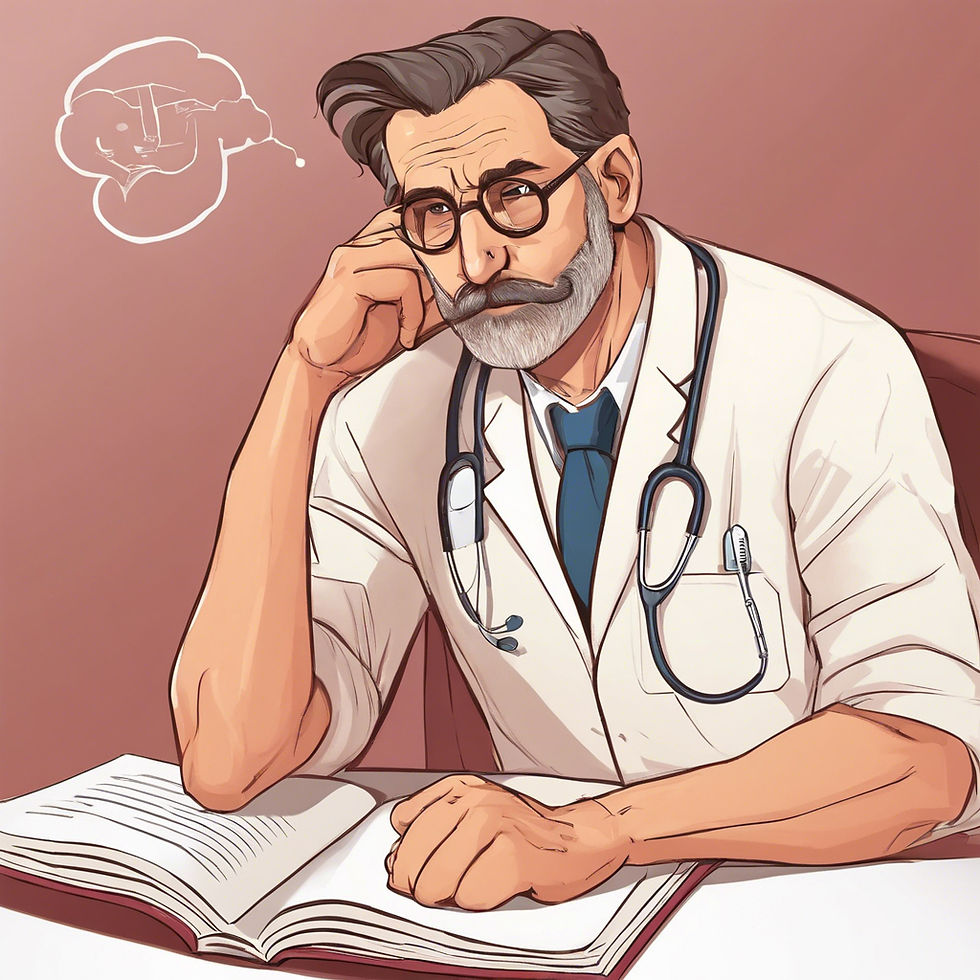How do psychiatrists actually think?
- refills4
- Jun 23, 2024
- 2 min read

I wanted to share a bit about what goes on in the mind of your doc (or, at least, what I hope occurs) when s/he considers care for you. This is how I approach it, and of note, this has changed considerably since I graduated residency in 2000.
Psychiatrists, fundamentally, are physicians, attending medical school like every other doctor. As such, ultimately, we want to make bad stuff go away. My initial training focused on symptoms—both for diagnosis and for the treatment plan. The most common treatment plan was, simply put, “make the symptoms go away.”
This is where all the medicine came in. If someone can take a pill (which has been tested for safety, quality, etc.), and get relief of symptoms, why wouldn’t we use it?
A few years ago, I read a fantastic book, Health Starts Now, by a recently retired and very well-respected physician, David Player MD. It echoed a sentiment I found in one of the classic texts of psychiatric education, William Glasser’s Reality Therapy, written in 1965. In both books, the authors elucidate that as medical professionals get more experience (for Dr. Player, it was about 20 years), we recognize that a whole lot of what we learned in school wasn’t practical (at best) and may have just been a flat wrong, if not outright harmful.
Benzodiazepines (that is, sedatives like Xanax) are a great example of this. I remember being trained, especially in the case of trauma, “Use what you need to get the patient sleeping.” At the time, we were unaware of the long term effects of the medications. I now use far less of these medications than I did in the past, and this goes for, well, pretty much everything else, too.
Of course, if someone isn’t functioning well—not eating, not sleeping, not engaging with family, not thinking clearly, is psychotic, or suicidal, then we must (!) get those symptoms under control. But in the case of most situations regarding anxiety and/or depression, I will ask, sometimes repeatedly over the course of therapy, “What is this situation trying to teach you?” Walking through the suffering, rather than avoiding it, is necessary for our growth as healthy adults. I want to help my patients do that, often in conjunction with a counselor, social worker or psychologist.
“I just want to be better,” is a common thing I hear when I ask patients what their goals are in coming to see me. But what does that mean? If I’m anxious around people, and I just avoid them, I’ll be less anxious. But is that actually better? It’s really vital that we define that together.
So—all that being said, and trying to keep this brief, I wanted to let you know my approach to biologic therapies now. Your goals and my goals need to be aligned, and we will reassess this periodically. Meds are helpful but not always necessary and sometimes worsen situations. Using appropriate natural/complementary therapies are often preferred (maybe by you, maybe by me). And I’m not averse to getting creative, provided that we have data to back up whatever we decide together.
Comments